pico 8
Recently, I’ve fallen in love with Pico-8. It has completely replaced Processing as my go-to tool for creating toys in code. If you’re of the same vintage as me (i.e. you lived through the 8-bit era and your year of birth seems distressingly far down web forms), then you might get a kick out of it too. Here are some of the reasons I like it so much.
1. It has everything you need
It’s got a built-in editors for code, sound effects, music and levels. You can construct an entire game without ever leaving the application.
2. It’s web-aware
With the touch of a button1, you can generate a gif of your program as it’s running. A small, perfectly-sized gif that’s perfect for tweeting. Speaking of which…
3. < 140 characters to do cool things
The #pico8 hashtag on Twitter has some great examples of the things people are doing with Pico-8. In less than 140 characters, you can have an entire program.
4. It reminds me of the good old days
I still remember sitting in front of a Commodore 64 for hours and typing out a program from Commodore User Magazine. It was a great way of learning a language and, looking back I realise, a great way of teaching patience. Well, the Pico-8 Fanzine also has a
-
or well, two. One to start the recording, one to stop it. ↩︎
Best Games I Played in 2015
2015 is the year that open-world games broke me. Remember a few years ago, when everyone was complaining about “shooter fatigue” because it seemed like every game we played was the same thing where you shot at things and the only thing that changed were the things that you shot at? That’s how I’m feeling about open-world games right now. They’re great if you want to spend days and days in the world of a game, but that just sounds like work to me. Personally, I’d prefer a short, authored experience. Anyway, this explains why there are some high-profile games that aren’t on this list1 - they were probably open-world games that just didn’t get their teeth into me.
Rocket League
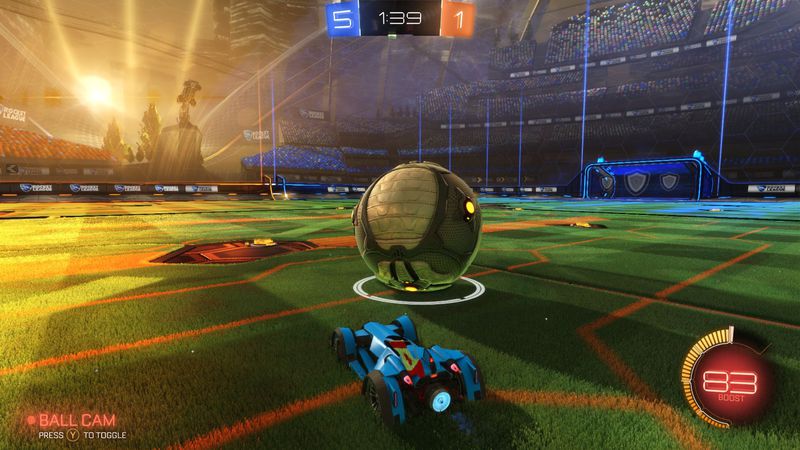
This is an unranked list, but if I was going to rank it, Rocket League would be the clear winner. It’s a football game, you hit the ball into the opponent’s net. But instead of controlling a player, you’re driving a car. A car with a rocket on the back of it. It sounds like a joke, right? Well, Rocket League was the most fun I’ve had in any video game all year. The local multiplayer is great fun, screaming laughing with your pals as one of you pulls off some ridiculous goal. Which is great by itself, but it’s also got a real depth to it. Watch some high-level videos and it’s like a whole different game. What I love most is that it’s genuinely the best football game I’ve played. All the other games, like FIFA, are trying to recreate the experience of watching football. Rocket League is recreating the experience of playing football. Favourite game of 2015.
Her Story
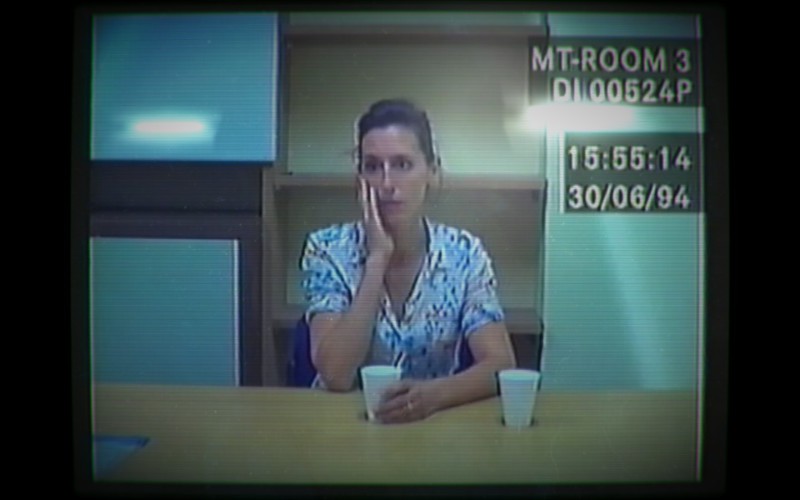
This is only the second ever video game (after Silent Hill 2) that my wife has ever played to completion. FMV is back!
The Witcher 3
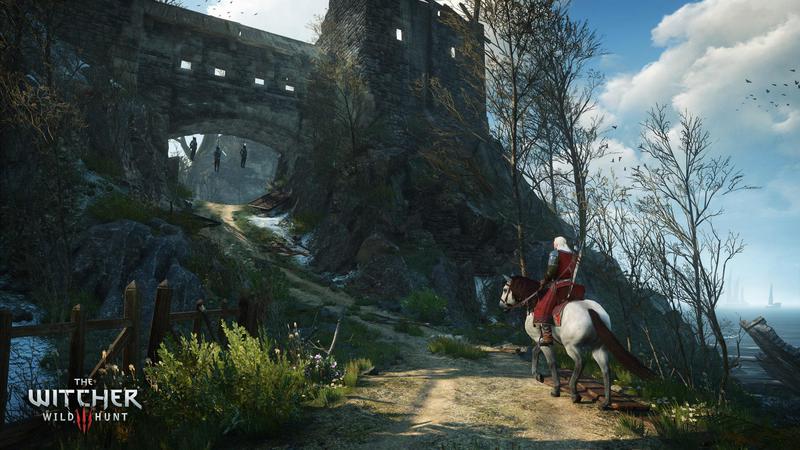
Okay, so I realise it was only just a minute ago that I was complaining about open-world games. And here’s an open-world game on my list. What the hell, John? Listen, my main complaint with open-world games is that it’s a way for the developers to artificially stretch out a game, to make it seem bigger than it actually is. And they can use it to hide a lot of the cruft in their actual narrative writing, going “ooh, but isn’t the environmental storytelling so good?” The Witcher 3 had actually great writing underpinning it. It’s dense, but accessible. There are quests here that I’m still thinking about, months after I put the game down. The open-world nature of it was incidental to the actual game. I haven’t enjoyed being in a game’s world this much since Red Dead Redemption.
Panoramical
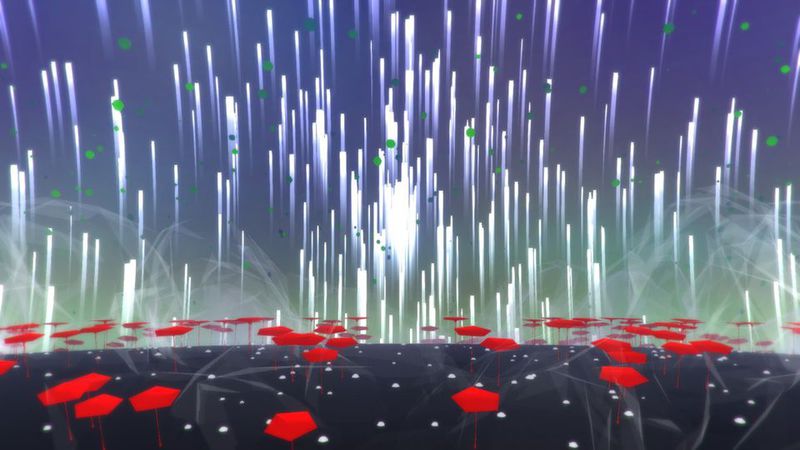
It seems like every year I make these lists, there’s at one entry that could be accused of not really being a game. This year it’s Panoramical. And sure, it’s not very game-like. It’s more like a peaceful, meditative toy. There’s no win-state to the game. You’re just presented with a series of landscapes with different visual and audio tracks, and you control the levels of these tracks. That’s it. That’s the whole game. Play away. You finish when you’ve had enough. There’s some real beauty here, if you’re into that kind of thing. I really am.
The Beginner’s Guide
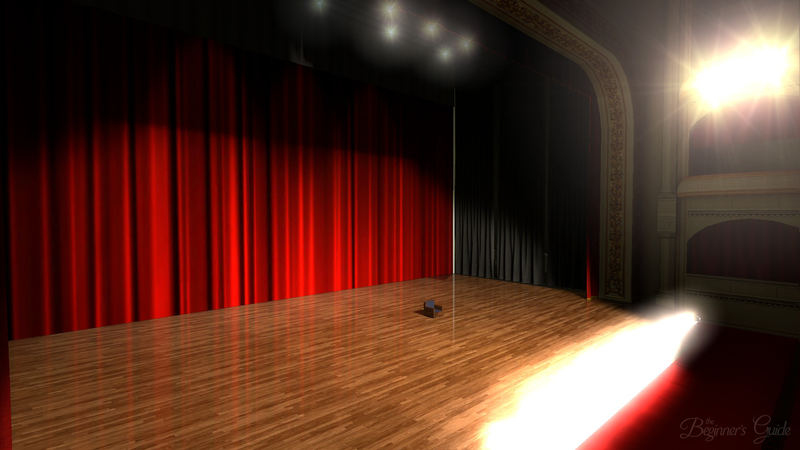
For the first hour or so of The Beginner’s Guide, I was in awe at the inventiveness of the game. It seemed like creator Davey Wreden was just showing off. At the very end of the game, there’s a revelation. And this completely upended everything I’d just experienced. I immediately played through it again and, even though it was the exact same content, I had a totally different experience. That someone can do something ambitious like this and just fucking nail it so hard is pretty impressive. When you know the back-story and realise this game is actually about something so deeply personal? Yeah, maybe he is showing off.
Sunless Sea
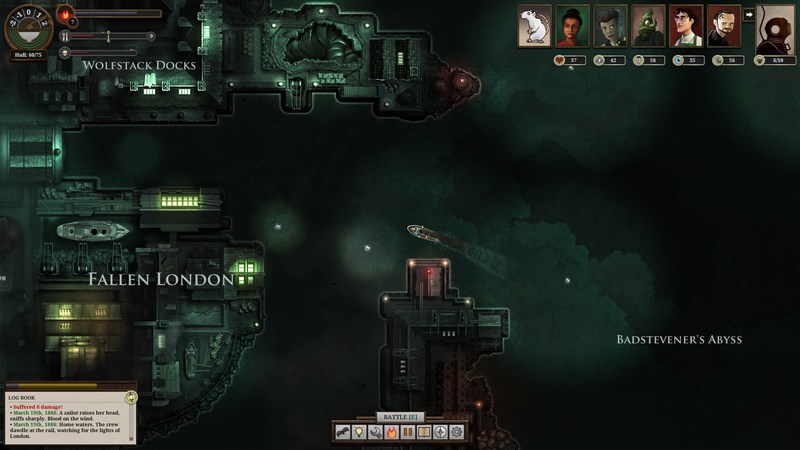
Even though the two are nothing alike, playing Sunless Sea triggers the same part of my brain that is triggered when I play board games like HeroQuest. There’s this wonderful, tactile feeling to the game, like you’re playing with lovely hand-crafted miniature pieces in a world where anything can happen and there are million stories to tell. I’ve played a few different games of Sunless Sea now and they’ve always gone in different directions. I have a feeling I’ll still be coming back to this in 2016.
Super Mario Maker

Okay, let’s say you’re not interested in making any levels yourself. And let’s say you’re not completely won over by the most charming presentation in any game ever. Then there’s these three words: infinite Mario levels. You can just download other peoples’ creations and have an almost limitless supply of Mario levels for you to play and enjoy. If this still isn’t enough for you, then I just don’t know what to say to you.
Star Wars Battlefront
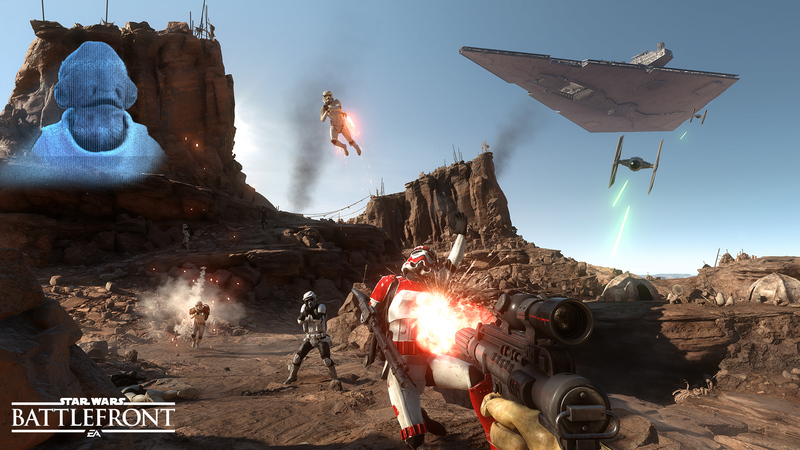
For a game that got fairly mediocre reviews, I had a fucking blast with Star Wars Battlefront. It’s not trying to be the deepest game ever made. It’s just trying to be a fast, casual, fun, and really, really ridiculously good-looking Star Wars game. And that’s exactly what it is.
-
e.g. Metal Gear Solid V, which I have played enough of to appreciate was a really well-made game, just not one of my favourites ↩︎
When Amazon Dies
Siva Vaidhyanathan, media studies professor at the University of Virginia, talking about the worst-case scenario in an all-digital world:
“Amazon has done so much to bully both readers and publishers. And yet if it were to collapse, it would cause chaos.”
At the root of that chaos would be the immense loss of media, and the wholesale disappearance of works—not just from personal collections, but altogether. “At the start of the 22nd century, we are going to find ourselves in a situation with huge gaps in knowledge and culture. Because none of these companies will be around.”
P.T., an online-only game and one of my favourite games of last year, was removed from the PlayStation store by its publisher. You can’t download it again. If you want to play it now, your only option is to buy a second-hand PlayStation 4 with the game already installed on it. And once the hard drives die in these machines? That’s it, no-one will ever be able to play PT again.
# Oct 8, 2015The decline of ebooks
Craig Mod has some theories surrounding the apparent decline in ebook sales. TL;DR: he reckons it’s mostly to do with the physical experience of reading on ereaders (and let’s be clear, when we say ‘ereaders’, there’s really only one player in town, the Kindle). For me, he borders too much on the fetishisation of the physical form of the book. For example, here’s his description of the travel guide City Secrets
Bound in rust-coloured cloth, rough against the skin, with jet-black foil‑stamped lettering and a small key on the cover, City Secrets was skinny. The trim size was non‑standard, much taller than wide. It bent easily, fit handily into my jacket pocket, and was made with cover boards that had a reassuring springy resilience. The combination of the size and the cloth cover made it feel like a travel companion – a book that could take a beating, be dragged around the world, stored for years, and returned to, again and again.
It’s like Nigella-style food erotica for the lit crowd.
But I sort of agree with some of what he’s saying. As I mentioned before (and I’ll continue to mention at any available opportunity), I recently — finally! — finished Infinite Jest. Now, Infinite Jest is a goddamn doorstop. A thousand pages of some of the densest prose you’ll find. It should be the perfect candidate for Kindle-reading. But I read the entire thing on a physical book. I hauled that monster in and out of the city every day on my commute, even though it took up most of the space in my bag, simply because it was just a more pleasant experience than reading on the Kindle.
The worst part is that a lot of the things that keep the Kindle from being a genuinely great reading experience (as opposed to an entirely passable one) are fairly minor. They’re not insurmountable. They’re mostly niggly details like shitty font options and character spacing that could most charitably be described as ‘schizophrenic’. And these issues are getting addressed, albeit at a glacial pace. This June, almost eight years after the first Kindle was first released and seven generations into the Kindle product line, Amazon released firmware that finally fixed its shitty hyphenation and layout engine.
So the changes are slowly coming, but Amazon’s reluctance to release any information or suggestions of where they plan to take the Kindle is baffling to me. Especially when it’s their mealticket item. Apple called the Apple TV their “hobby” and said nothing about its roadmap (until they finally did). Amazon seem to be treating the Kindle in the same way. Is it any wonder people are returning to books? I’m sure they’ll be back to the Kindle when something dramatically enhance the experience on there, but who knows how long that will be?
Personally, there are two things I would love to see that would improve my relationship with the Kindle. First, release an updated Kindle DX. You know, the bigger Kindle. The “Kindle Pro”. My neighbour in Rome, an editor, used to have one and it was the cadillac of readers even then. The resolution of the Kindle Voyage is finally at a print-like level, but the size of the actual screen means it’s useless for anything but imitating cheap paperbacks. A slightly larger physical screen would open the device up to so much more.
Second, and this is a cheap, simple win - I’d love to see the Kindle display the cover of the book I’m currently reading instead of the Kindle’s shitty generic screensavers. When I read a physical book, I am greeted by its cover every time I look at it. I know the name of the author, I know the name of the book. On the Kindle, this stuff is hidden away from everyday view, so it’s possible to read a book and have no idea of its title or who wrote it. You’re cut off from a relationship with the book in favour of a relationship with its content. The cover, that singular piece of design that, let’s face it, we almost always base our initial judgement of a book on, is completely removed on the Kindle. Without it, a book is just a collection of photocopied pages held together with sticky-tape.
# Oct 5, 2015On Reading
1.
We’re in the middle of getting a terrifying amount of work done to our house in Marino, so we’ve temporarily decamped out to my mother-in-law’s house in Greystones1. My commute into work has switched from a 15-20 minute cycle each way to a 50-minute train ride each way. As a result of this new-found extra (dead) time, my reading has gone through the goddamn roof in the seven weeks since I’ve been out here. Instead of just the few minutes of reading I can snatch before falling asleep, I’ve got these huge swathes of time in my day where there is almost nothng else to do but read. Here’s a graph of my reading, based on what I’ve logged to Goodreads:
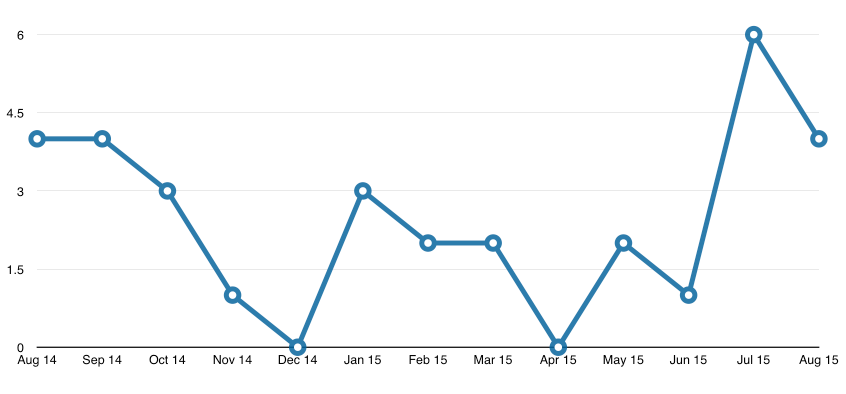
I’m finishing books I’d previously started and given up on (e.g. A Wrinkle in Time2), and books I’d been too terrified to even begin (e.g. Radley Balko’s Rise of the Warrior Cop).
As a result of this, I’ve decided there will probably never be a better time to tackle Infinite Jest.
2.
Infinite Jest will be the eleventh book I’ve read in the seven weeks I’ve been out in Greystones. In this time, no-one has ever come up and commented to me about the book I’m reading. Even when I’m reading stuff that I secretly want people to come and talk to me about (e.g. John Darnielle’s Wolf in White Van3), nothing.
On Friday evening, as the train came into the station in Greystones, after I’d packed my copy of Infinite Jest into my coat and got my coat on, a complete stranger came over and sat down beside me. “Sorry, I couldn’t help but notice the book you’re reading there. How are you getting on with it?” I told him how I was really happy - I’m enjoying it because I’m actually making significant progress in the book (currently on page 305, which is the first time I’ve even got past page 100). “Yeah, stick with it. There’ll be parts in there that will make you want to give up, but stick with it, it’s totally worth it”, he said.
“Oh, I don’t intend to, I’ve also got a non-fiction book going at the same time to keep me sane”, I said.
“Good idea! Well…”
And then, awkward silence, because what else is there to say?
Now I feel awkward. Does this interaction mean I’m part of the problem, a pretentious DFW lit-bro? Do I now need to give up on Infinite Jest entirely, just in case I fall into some stereotype?
3.
I get home and I tell the above story to my wife. She says “yeah, that’s weird!” She knows this isn’t my first time trying to make my way through Infinite Jest. and asks me how many pages I’ve read of it this time. I tell her just over three hundred.
“How many pages are in the book?”
“Nine hundred and something, not including footnotes. So I’m about a third of the way through. I’m pretty happy with my progress!”
“Yeah, but you’re not halfway through.”
Marriage.
-
There’s an entire blog post to be written about the differences between living in Greystones vs living in Marino, but this is not that blog post. ↩︎
-
Which I gave up on previously because it felt like it was dull and overrated and which, having now finished it, I can confirm, is indeed, dull and overrated. ↩︎
-
If you’ve read this book, please hit me up on Twitter. I’d love to find more people (read: literally anyone) to talk to about it. ↩︎
Authenticity
Casey Neistat just launched his new social network, Beme. It’s probably easiest if I just link to Casey’s video so he can describe it himself.
I really love the idea of Beme. I mean, is there anyone genuinely advocating for these awful, fake, rigidly curated lives on Facebook and Instagram? When these perfectly-composed, perfectly-filtered shot appears in my timeline, I get the worst fomo. The consolation, the thing that prevents me spiraling into a full-on, god-what-am-I-doing-with-my-life depression is realising that for someone to take the time to line up the shot, crop it, choose the right filter, and upload it - this all means that they weren’t actually engaged in the moment they’re depicting 1. So I understand the problem Beme is trying to solve.
So here’s another one of his videos, where he climbs a theater in Belgium.
This is the moment when I realised that even Casey Neistat is guilty of not being engaged in the moment. At 4'00 in that video, you can see him scrambling up a near-vertical wall. God, I haven’t ever climbed up a Belgian theater - the fomo is starting to set in! But hang on a second. To get that shot, he had to climb up the wall, set up the shot, climb down again and then climb up again. And then later on, he had to edit out the first two parts of that2.
Casey Neistat made a name for himself through his youtube videos. And his youtube videos are so watchable partly because of his enormous, planet-sized personality. But they’re also watchable because they’re really well made. They’re tightly edited, and they’re shot with a filmmaker’s eye. None of which are available with Beme - you get a potentially wonky shot (apparently worse if you have boobs), with no way to correct it. And since you don’t know what you uploaded, there’s no way for you to improve your skills. Chances are you’ll always be shooting wonky junk.
I really would like Beme to succeed, but I worry that heavy users of social media (i.e. not me) aren’t going to like the limitations, so we’ll just be left with videos like this one. Authentic as fuck, but that’s pretty much all you can say about it.
-
One of my biggest personal achievements of the last year is when I climbed Croagh Patrick. But would you know I’d done it by looking at my Instagram or my Facebook timeline? Would you fuck. ↩︎
-
He addresses this in his vlog, where he often posts videos of him running in New York and he says his runs end up taking three times as long because he has to set up the shot, go back, run past the camera, then go back for the camera. ↩︎
Thank You, Mr Iwata
Remember when video games were fun? Remember when they were about colour and happiness? Watching E3 2015 a few months ago, you’d be forgiven for thinking that these were things that video games had grown out of. It was dour, brown, post-apocalyptic shooters as far as the eye could see. Bombast and spectacle were the order of the day. The thing that drew one of the biggest cheers from the Microsoft crowd was when they lowered a fucking Ferrari from the roof. A fucking Ferrari.
Here’s what Nintendo did for their E3.
They teamed up with the Jim Henson Company to make puppets of their corporate team and made the most adorable, dorky video imaginable. And it was lovely.
It was a uniquely Nintendo way of approaching the industry. It was showing that video games could still be about colour and happiness and fun. And it’s largely because of this man, Satoru Iwata.
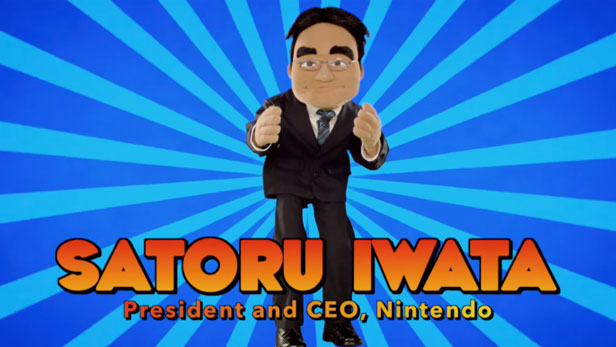
When someone asks me to picture the president of one of the three largest video game companies in the world, this is exactly what I want to imagine. Not someone in a blazer and jeans with a focus-tested number of shirt buttons opened. I want a person who understands why we play games. I want a person who knows that games are about bringing people together, not just about shooting people in the face. I want someone who gets it.
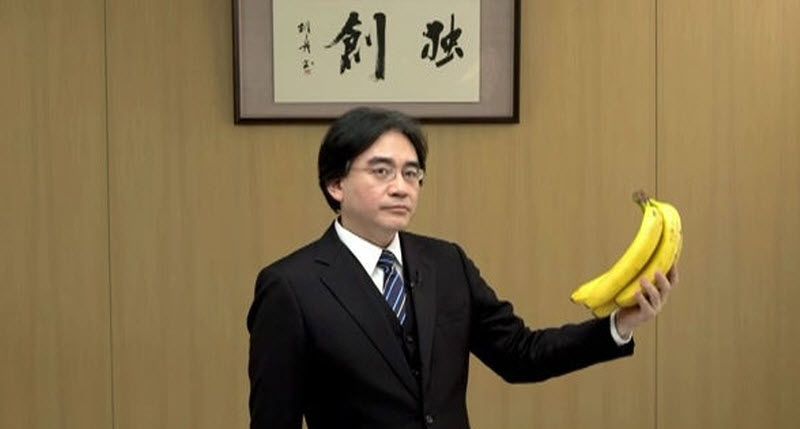
Iwata got it. And the world feels a little less joyful now that he’s left it.
Thank you, Mr Iwata.
# Jul 17, 2015Cards Against Humanity
Shut Up & Sit Down has reviewed Cards Against Humanity. Spoiler: they don’t like it.
Which is great because I’m not a fan of it either. It almost always comes out at parties and my heart absolutely sinks. Maybe I’m just going to the wrong parties.
The main reason I don’t like it is because playing it reminds me of this scene from Nathan Barley:
“I’ve seen idiots playing this, yeah? They don’t realise it’s not good cos it’s rude, yeah?”
“Yeah, it’s good cos it looks like it’s good because it’s rude?”
It’s not transgressive. It’s not shocking. It’s boring. But it gets trotted out at parties because pretty much everyone already knows the rules (it’s Apples to Apples, except where half the answers are ‘big black dick’) and for people who don’t know the rules, it’s easy for them to pick it up. But guys, it doesn’t have to be this way! There are lots of party games that are more hilarious and more chaotic and more creative and more fun.
So here are some party games I’d recommend instead:
Say Anything
If you’re looking for an immediate replacement for CAH, Say Anything is top of the list. It’s basically the same thing: one person reads the question, other players have to fill in the blanks. Except with Say Anything, you write down your answer. Whatever you like. Rather than allowing the game to be funny/shocking for you, you get to be as funny and as shocking as you can be. And it all comes from you, which makes it all the more rewarding and enjoyable. Trust me, ditch CAH and get this instead.
Snake Oil
In Snake Oil, one player draws a customer card with a particular role on it and the other players have to combine two cards in their hands to create an object to ‘sell’ to the customer’s role. So, for example, if the customer is a caveman, you might combine your ‘fur’ card with your ‘whip’ card to create a “fur whip”, which will whip the fur straight off an animal, meaning your cave will be nice and toasty and clean as a whistle. OH LOOK, I DON’T KNOW. The point of this game is that there is no ‘right’ answer here and the whole fun of the game is in the ridiculous stories people will come up with to sell things. I played this with my mother (who is in her seventies now) and she had a blast.
The Resistance
The Resistance is sort of like Werewolf, where some people in a group are spies and they have to make it through five rounds without getting caught. What’s so great about this game is that it will have you and your friends talking analysing everything and talking and re-analysing everything and then talking and over-analysing everything. This is probably my absolute favourite game of all time just because it always leads to chats and shouts and laughter.
Monikers
At the risk of coming across like a SU&SD fanboy, just go check out their review. If this doesn’t immediately make you want to go out and play this game, maybe ‘fun’ isn’t really your thing and yeah, maybe you should just stick with CAH.
Skull and Roses
You know in poker, they say you don’t play the cards, you play the player? Skull and Roses is an even more concentrated example of this. It’s serious bluffing where you have look all the other players in the eyes before you make your decision. The only problem I have with this game is that it’s about elimating other people, which means if you’re eliminated early, there’s a lot of sitting around watching other people play. Which is still fun! Just not as much fun as, you know, actually playing.
Aggregation is Broken
A few days ago, there was a bit of a kerfuffle between Vox and 538 (Nate Silver’s blog) over Vox posting some of 538’s content without ‘proper attribution’. Vox put up a poor mouth semi-apology in the way of a statement on vox.com called ‘How Vox Aggregates’. Here’s a bit of that:
I started as a blogger in the pre-social web, when the only way to build an audience was to have other sites quote or link to your work. Those links didn’t drive a ton of traffic back to the original site, but they drove some, and sometimes you would get a new regular reader out of the deal. And that was basically how my career began. Everything I wrote, I wrote in the hopes that someone else would take it and try to use it on their site, with a link back to my site.
The lesson of that, to me, was that writing on the internet is a positive-sum endeavor: I was creating content that helped other people make their sites better, and in using that content, they were helping me grow my site.
Vox’s approach to aggregation — which Nate Silver criticized today on Twitter— is informed by that.
There have been lots of Hot Takes on this. Here’s mine.
I firmly believe that in a post-social web, aggregation is completely broken. People aren’t looking to diversify their reading. If they see an image on Tumblr that’s been shared across dozens, even hundreds of sites, are they going to untangle that rat’s nest of attribution and find the original creator of that image? Are they fuck. At best, they’ll follow the last person to share it - they’ll follow the aggregator. Balls to the creator.
Gamification of the internet is only making it worse. And by this, I mean sites that award points to people based on the content they post. See something interesting or funny on the internet? Post it to Reddit under your name and you get all the glory! Win-win.
Back in February, I posted something on Twitter that accidentally went semi-viral, with a few thousand retweets and favourites.
Born before 1990? Whatever. We don’t care. Tell us about the war or something, grandpa. pic.twitter.com/FiWXo36JBl
— John Kelly (@johnke) February 14, 2015I was bored the other day, so for shits and giggles, I googled the text of this tweet and found that I’d made it to Buzzfeed. I had no idea about this because I received no noticable bump in followers from them, even with their attribution. But I also found that someone on Reddit had lifted the text and image from my tweet and used it to score 47 points on /r/funny (I have a Reddit link score of 1. Yes, one).
Now I’m just a minor player in this whole thing. What about the people producing genuinely great and funny content? Last week, Mallory Ortberg (one of my favourite people on the internet) discovered that some of her work had been lifted by thepoke.co.uk.
Hi! You have copied my piece (http://t.co/lQXtN0DZYi) in full without crediting me. Mind taking it down? @ThePoke
— Mallory Ortberg (@mallelis) April 7, 2015To be fair, The Poke had attributed it to where they found it - an imgur gallery (later itself updated with proper attribution after its creator received a twitter backlash), which in turn came from a thread on /r/funny (4618 points, btw). This thread also included one hilarious comment that serves to emphasise my point: “atleast give credit to the person who made them, stolen from front page funnyjunk”.
Ugh.
Seriously, aggregation on the internet is a fucking joke.
# Apr 20, 2015Recent Film Reviews
(I try to post reviews of all the films I watch over on letterboxd. Here are some of my most recent reviews)
Black Sea ★½
When you’re making a submarine film, I’m sure it’s really tempting to default to autopilot and cross off the tickboxes of all the scenes you expect to see in these films. The near-miss collision, the accident that sends the sub to below crush-depth where they just barely survive. Etc. etc.
So it’s not enough for Black Sea to lazily trot out the same hackneyed bullshit we’ve seen countless times in films like this while claiming to be different because this time it’s all in service of a story that’s really just a commentary on the exploitation of the working class.
Plus, it has Jude Law (with the worst Scottish accent since Christopher Lambert) saying “the shit is fighting back”. Honestly, that’s an actual line from this film.
Good grief.
Predators ★★★
Predators isn’t a bad film. In fact, it’s got some really great bits in it: the smash opening; the reveal they’re on an alien planet; any time Walton Goggins is on the screen. In fact, it’s a good enough film that you’ll actually overlook the fact that they cast (lol) Adrien Brody (lol) as a badass soldier (lol).
But if there’s a complaint to be made about the film, it’s that it’s just too goddamn bleak. For the entire 107 minute run-time, there’s not a single moment of hope to be found in this film.
Exhausting.
Star Wars: Episode III - Revenge of the Sith ★
Honestly, the next time some dickbag comes along and tries to tell me that Episode III is the best of the prequels, I’m going to smack that person in the goddamn nose.
White God ★★
I know White God is supposed to be a parable, but I’ll be damned if I know exactly what it’s supposed to be. Current list of theories:
- Social Exclusion
- Teenage Angst
- Immigration
- The prison system
- The oppression of the Jews before and during WWII (what dog pounds have such prominent chimneys?!)
It could be any one of these things. It could be all of them. I don’t know. And I’m not sure the film itself actually warrants the kind of time it would take to develop these theories. It’s 100 minutes of a dull, emotionless domestic drama with 20 minutes of interesting images tacked onto the end. Seeing 200 dogs running through Budapest dishing out vigilante justice like some canine Mr Majestyks was at least something I hadn’t seen before. The rest of the film was just filler.
Groundhog Day ★★★★
For most of this film, it’s all very clever and enjoyable and even if it doesn’t sweep you off your feet, you think “I’m so clever, I can see all the mechanics of this plot at work and I can appreciate on an intellectual level what the film is trying to do. Yes, very clever.”
And then the last scene rolls up and hits you like an ton of bricks. Even if you’ve seen the film before, it’s still a gut-punch of emotion.
That’s the real genius of this film.
Force Majeure ★★★½
Force Majeure is an interesting reflection on the ways that relationships can be affected and tested. There are the large, obvious events, like a father leaving his family to save his own life under the threat of an avalanche. But these are just the sparks that ignite the fuel that’s already there: the years of insecurity and resentment. And those are the things that really test relationships.
I guess it says something about my own marriage that we chose to watch this on Valentine’s Day.
Wild Card ★★★
Jason Statham IS Nick Wild in WILD CARD.
If this sentence doesn’t make you want to immediately run out and watch this film, forget it, this is not the film for you.
# Mar 19, 2015